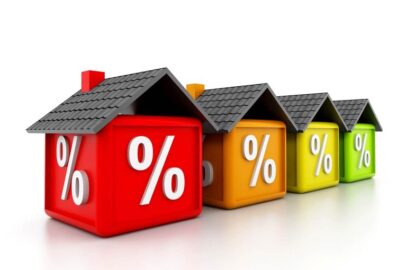Rightmove has reported that the price of property coming to market was up 0.2% in September, £269 below the record set in July.
Its house price index found that the ‘second-stepper’ sector of three or four-bedroom homes reached a new record of £291,618, as more buyers seek larger homes. This price record has been fuelled by buyers looking for more space, including both those who need extra space for their families and those looking for room to work from home.
The northern regions saw the strongest increases, with Yorkshire & the Humber, East Midlands, West Midlands, North East, North West and Scotland all at new records.
National sales agreed for the whole year to date are down just 5% on the same period in 2019, with East of England (+4%) and South East (+1%) already ahead, while Scotland (-21%) and Wales (-16%) still lag behind due to their later reopening
Tim Bannister, Rightmove’s director of Property Data, said: “Increased competition for second-stepper homes has pushed prices to a record this month for those looking to take the next step up the ladder. Needing more space has always been the most popular reason for moving house, but now there’s a new urgency for extra space to be able to work from home, which means that there are different sets of buyers competing for the same type of property.
“At the start of the year a fourth bedroom was very much a luxury for buyers trading up, but it’s now emerging as a must-have for those who are able to take that step. With overall asking prices just a few hundred pounds shy of July’s record, and buyer demand at an all-time high, those currently looking for their next home are likely to find that only offers close to the asking price will be considered, especially for larger homes.”
Rightmove said the demand for larger homes is also reflected in the number of sales being agreed by agents compared to this time last year. The strongest sector is ’top of the ladder’, which includes four-bedroom detached homes and larger. Sales agreed, compared with the same period last year, more than doubled in August in this sector, up by 104%. While in the second-stepper sector (three- or four-bedroom homes excluding four-bedroom detached) they were up by 55%. The first-time-buyer sector of two bedrooms or fewer, although not as strong as the larger homes sectors, still saw sales agreed up by 36%.
Nationally, sales agreed for the whole year to date are now down by only 5% on the same period last year. Two regions – the East of England (+4%) and the South East (+1%) – have already overtaken the number of sales agreed for the same period last year, helped by higher average prices causing the stamp duty holiday to have more of an impact for buyers and sellers in these areas.
Both Scotland and Wales are in double digit declines as they are still playing catch up from reopening their housing markets later than England, and are now down by 21% and 16% respectively.
In London, sales agreed for the year to date are down by just 3%, with a two-speed market in play. There is strong sales activity in Outer London, especially for top-of-the-ladder homes, while areas like Zone 1 are finding it more challenging, where sales are down by 14% for the whole year to date compared to the same period last year. The strong activity in Outer London has helped the capital to climb back to being the second fastest region for the average time taken to secure a buyer, now being beaten only by Scotland at 35 days.
The average number of days to agree a sale in London is now 49, 20 days shorter than at this time last year. Nationally, the average time to secure a buyer has dropped from 62 days in August 2019 to 53 this August.
Bannister said: “When comparing with last year, it’s remarkable that two regions have already caught up with and overtaken the number of sales agreed across the year so far, and if the market continues at its current pace then we could see all areas of England break even over the next month or so. We know that some people are now choosing to move out of London altogether, but these latest figures show that there’s still plenty of activity in the outer areas of the capital. The market remains challenging in Zone 1, as the benefit of living within walking distance of an office in the City has dropped down buyers’ wishlists for now.”
Rightmove’s analysis estimates that there are nearly 40% more sales currently on the journey from agreeing a price towards completing the sale compared to this time last year, leading to agents reporting that they are having to manage expectations with clients and explain to them that their sales are going to take a bit longer to complete.
Bannister added: “We’re hearing of challenges at all steps of the buying and selling process, including lenders having to deal with a higher number of mortgage applications and solicitors over their capacity, and we estimate there are nearly 40% more sales currently going through than at this time last year. The temporary stamp duty holiday means that there’s more urgency than usual for the congestion to be cleared by the end of March, making it vital for buyers and sellers to work closely with their estate agent and to make sure that they’re moving fast when the ball is in their court to complete a document or answer questions. We’d advise that buyers and sellers factor in at least an extra month to account for the current delays in the process, if possible, as time is already running short for sales that are agreed now to be completed by Christmas.”
